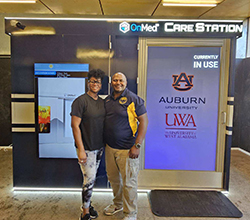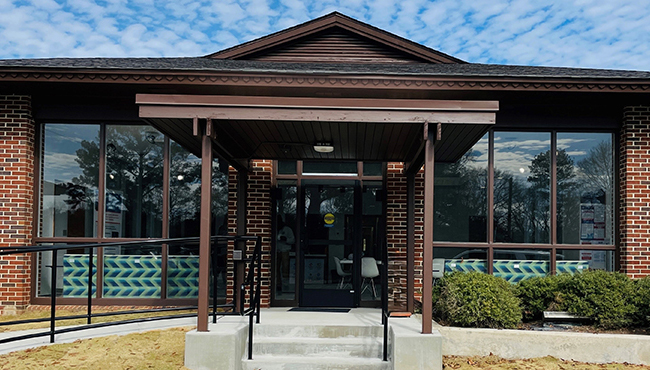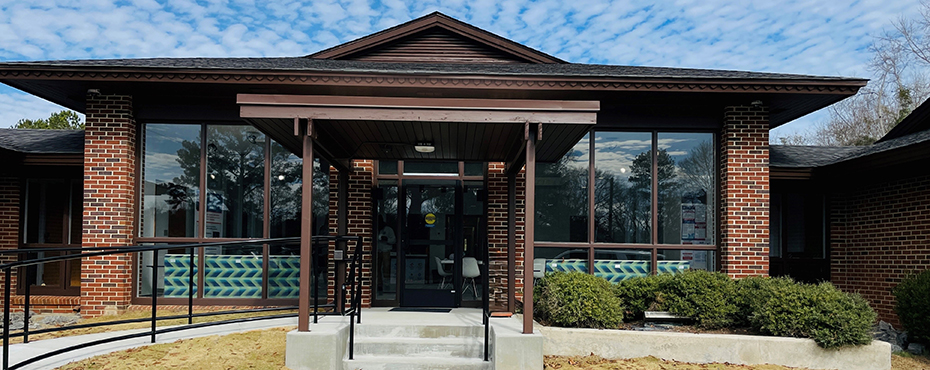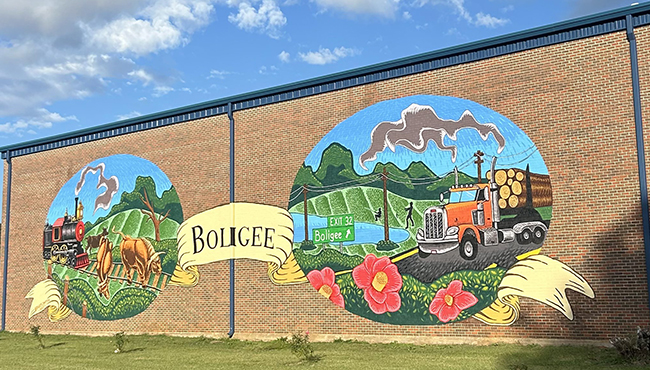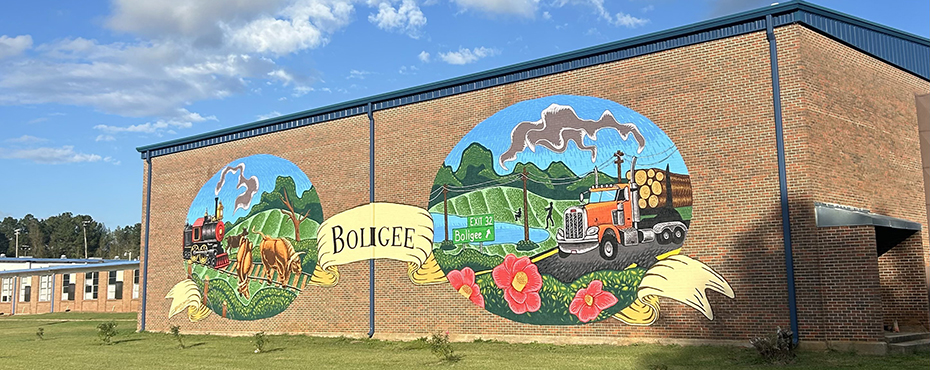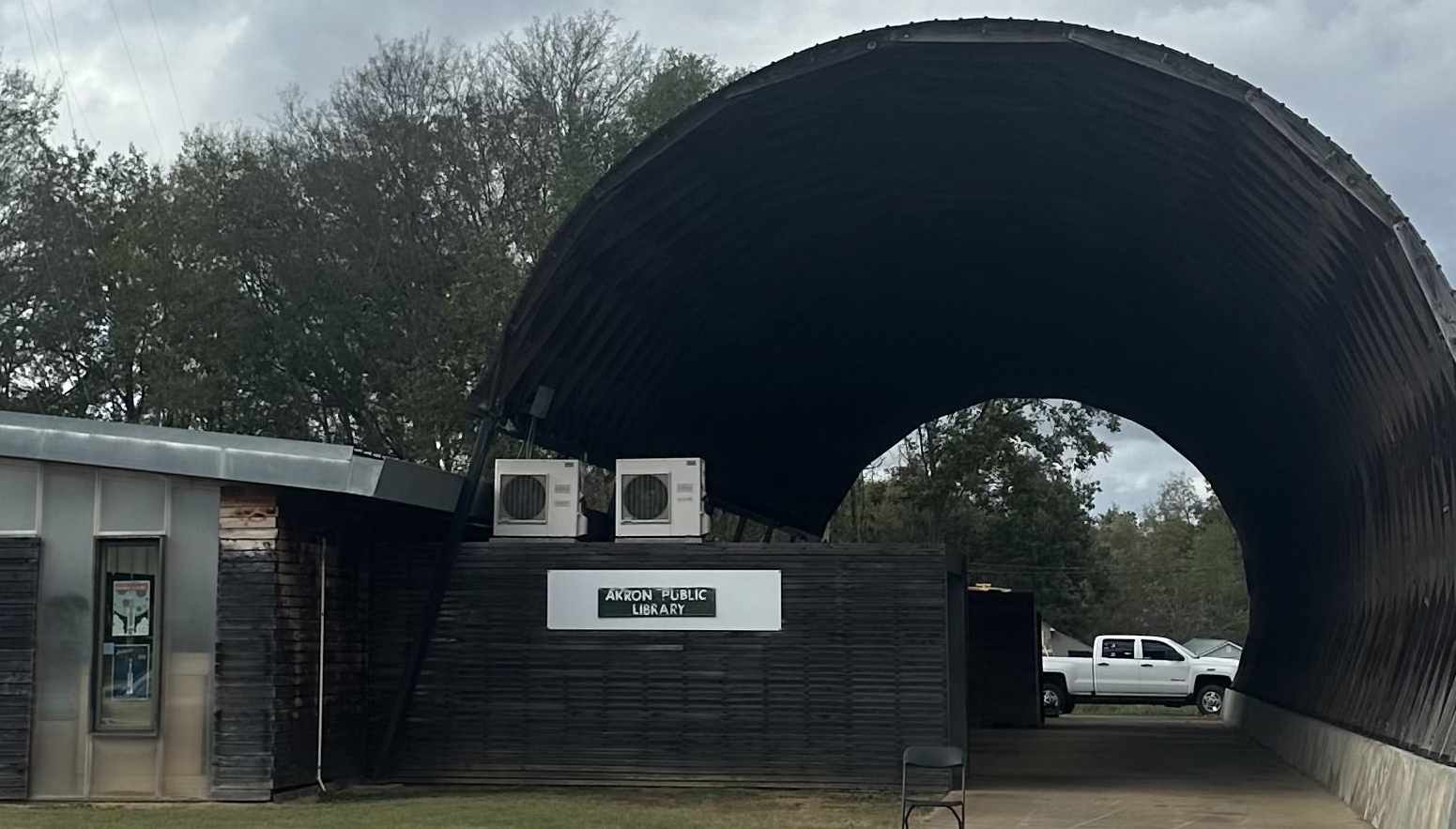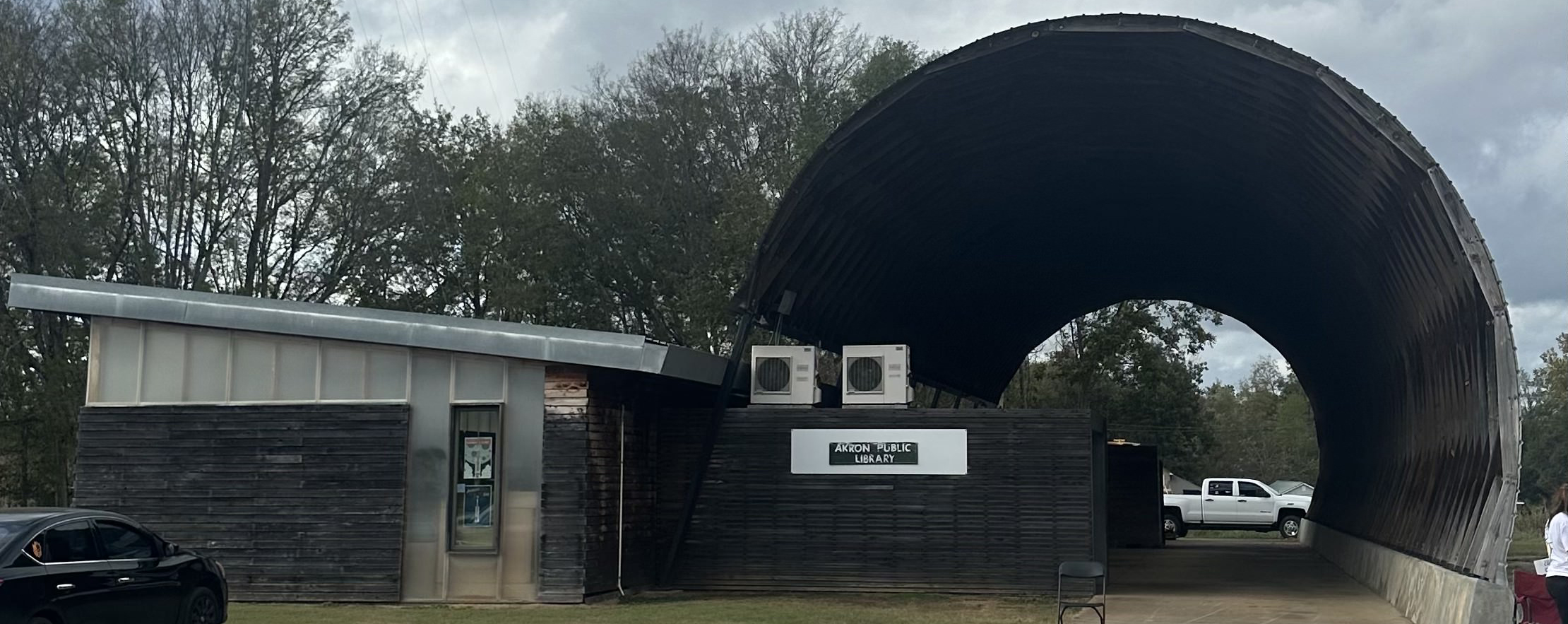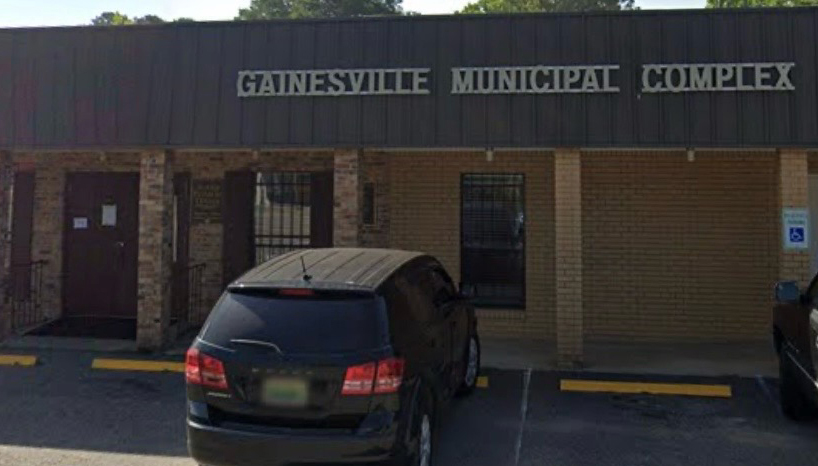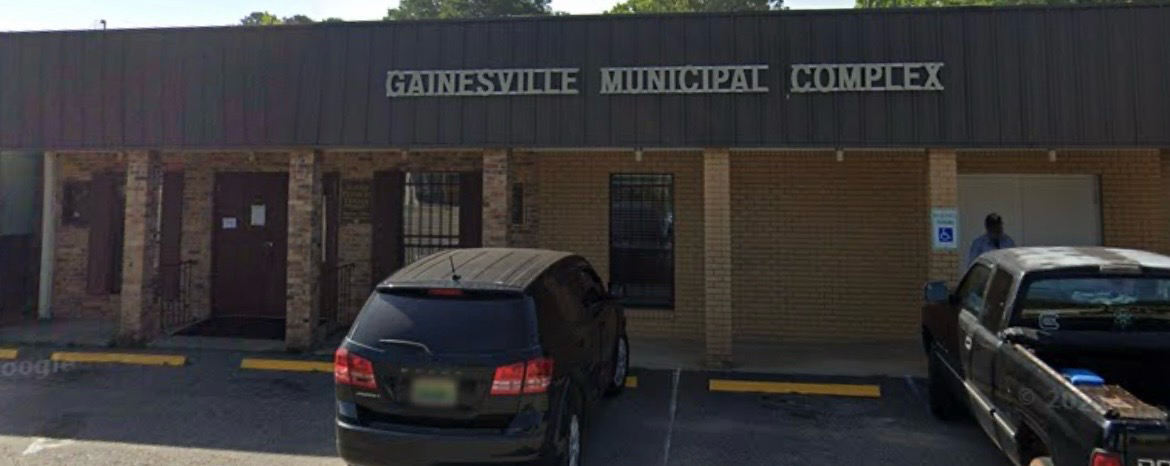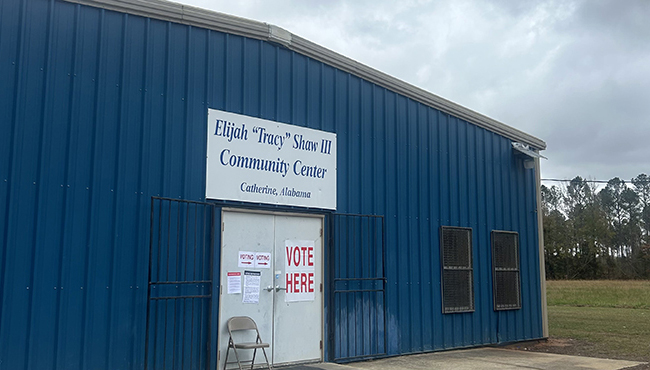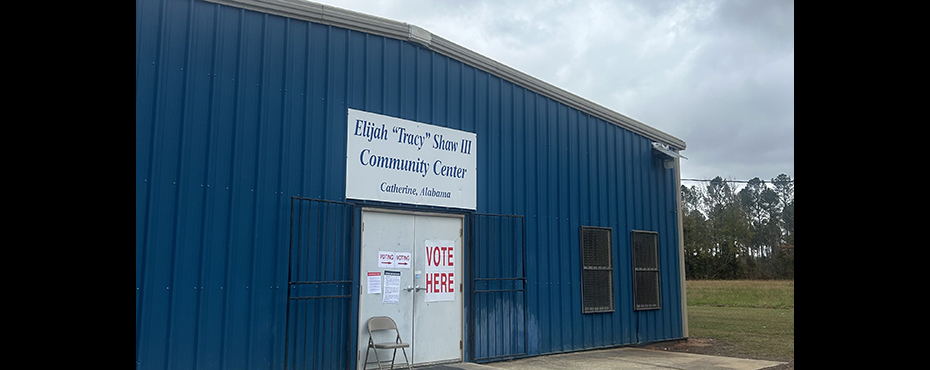Auburn University Rural Health Initiative: Partnering with communities to increase access to high quality and affordable health and wellness care throughout rural Alabama.
Auburn University’s Rural Health Initiative employs a community-based approach to serve local healthcare needs through the innovative technology of the OnMed® Telehealth Station coupled with hands-on wellness care provided by University faculty and students.
Background
University Outreach and Alabama Cooperative Extension System are addressing significant health disparities across rural Alabama in partnership with the Colleges of Pharmacy, Nursing, Human Sciences, Education and the Speech, Language and Hearing Sciences program. Auburn University team members have worked closely with community leaders and community members in Chambers, Greene, Hale, Sumter, and Wilcox Counties to develop health programming that meets each community’s unique needs. The University of West Alabama serves as a significant partner in this work by providing internet services, logistical support, and health services support in our west Alabama locations.
Each of these communities is provided with healthcare at no cost to patients through OnMed®, an accessible and innovative healthcare option. The CareStation provides users with a private, and efficient health care experience at no cost to patients by facilitating a real-time patient encounter with an Alabama licensed clinician in a virtual setting using diagnostic tools available for practitioner-guided self-use.
Ten additional East Alabama locations will serve as telehealth access points for mental health treatment (through Auburn University), substance use disorder treatment (through UAB-Beacon) and primary healthcare (through East Alabama Health).
In the News
Timeline
Discussions and regional convenings to focus upon solutions to address rural health disparities with campus and community-based partners began in October 2020. The timeline below depicts the evolution of the Rural Health Initiative.
October 2020
Introductory meetings and program proposal discussions.
October 2020 - Present
Conceptualizing and planning meetings with AU faculty.
November 2020
Site visits.
December 2020 - June 2021
Budgeting, Securing Funding
July 2021 - January 2024
Continued Community Engagement
August 2021 - December 2021
Secure MOU, Licensing Agreement, ADECA Grant
March 2022 - January 2023
Outreach Activities
November 2022 - January 2023
Site Preparation
February 2023
Soft Launch of Center, Demonstrations Begin
February 2023 - April 2023
Health and Wellness Programming, OnMed Demonstrations
April 2023
Grand Opening Event
August 2023
Secured funding to install 4 care stations in the Black Belt
September 2023
Secured funding to install telehealth equipment in 10 locations across East Alabama to provide primary care, Substance Use Disorder treatment and Mental Health treatment
September 2023
Black Belt Community Health Conversations began
January 2024
Grand openings of centers in Wilcox, Sumter and Hale Counties
March 2024
Secured MOA with Wilcox County to develop a health and wellness program with an OnMed care station
July 2024
OnMed Care Station installations in Wilcox and Greene Counties
August 2024
Site Visits to Hale County and Sumter County to identify additional sites
October 2024
OnMed Care Station installations in Hale and Sumter Counties
December 2024
Memorandum of Agreement with University of West Alabama signed
January 2025
Grand openings in Hale, Sumter and Wilcox Counties
Mission
Increase healthcare access and improve health outcomes throughout Rural Alabama while providing impactful experiences for students in health-related fields through unequaled collaboration between resources of Auburn University, the Alabama Cooperative Extension System (ACES) and Alabama communities.
Vision
Be the leader of innovative healthcare solutions in the State of Alabama by ensuring every community has quality healthcare resources and students have impactful experiences in rural Alabama.
Values
- Prioritize interunit, interprofessional, and collaborative work and ensure that all stakeholders are honored, respected, and represented within the initiative.
- Instill a team-based, interprofessional approach to healthcare delivery among healthcare faculty, staff, students, and partners.
- Lead the initiative with honesty, integrity, and transparency.
- Make valuable contributions and lead meaningful change to ensure healthcare equity within the state of Alabama.
- Deliver real-world, practical solutions to advance healthcare equality in the state of Alabama.
- Leverage the synergy of the university’s tripartite mission to maximize impact on rural health equity.
- Improve health disparities and population health outcomes.
Model
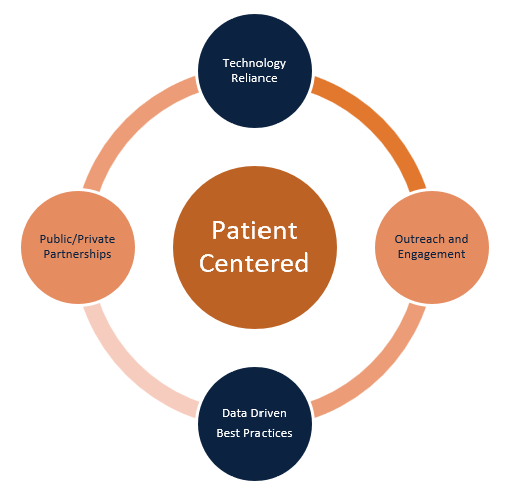
Leadership
As a community based-and collaboratively led initiative, Auburn University campus and community partners work to ensure that community health and wellness remain at the forefront. For this reason, each partner plays a key role in all planning and decision-making. Auburn University, through University Outreach, Alabama Cooperative Extension System and faculty from the colleges of nursing, liberal arts, pharmacy, education and human sciences is honored to spearhead this work across our state alongside stellar community leaders as equal partners. Project leaders are listed and updated regularly as the project evolves.
-
Auburn University
- Royrickers Cook, Vice President for University Outreach and Associate Provost
- Hollie Cost, Assistant Vice President for University Outreach and Public Service
- Eve Brantley, Associate Director, Alabama Cooperative Extension System (ACES)
- Linda Gibson-Young, Professor of Nursing and Nursing Outreach Coordinator
- Jennifer Kerpelman, Associate Vice President for Research
- Rachel Snoddy, Chambers County Extension Coordinator
- Tim Moore, Associate Dean for Research, Harrison College of Pharmacy
- Rachel Snoddy, Chambers County Extension Coordinator
- Chippewa Thomas, Director, Faculty Outreach and Engagement
- Laura Downey, Associate Dean and Assistant Director, Human Sciences Extension
- Kimberly Braxton Lloyd, Associate Dean of Clinical Affairs and Outreach, Harrison College of Pharmacy
- Laura Plexico, College of Liberal Arts, Associate Dean of Engagement and Graduate Studies
- Sharon Haynes, Assistant Director, Field Operations, ACES West Central
-
Chambers County
- Rachel Snoddy, Chambers County Extension Coordinator
- Sam Bradford, Chambers County Commissioner
- Chris Busby, Deputy Director, Chambers County Economic Development
- Debra Riley, Chambers County Commissioner
- Louis Davidson, Clerk, City of LaFayette
- Jim Doody, Fire Chief, City of LaFayette
- Kenneth Vines, Mayor, City of LaFayette
-
Greene County
- Doug Fulghum, Greene County Extension Coordinator
- Hattie Samuels, Mayor, Town of Boligee
- Mike Gibson, City Council, Town of Boligee
-
Hale County
- Jovita Lewis, Hale County Extension Coordinator
- Christopher Rollins, Mayor, Town of Akron
- Dimetra Rollins, Community Health Champion, Town of Akron
-
Sumter County
- Trenisha Mack, Sumter County Extension Coordinator
- Coulter Nelson, Mayor, Town of Gainesville
- Shana Moore, Clerk, Town of Gainesville
- Marcus Campbell, Sumter County Commission
- Drucilla Jackson, Sumter County Commission
-
Wilcox County
- Shareka Johns, Wilcox County Extension Coordinator
- Clara Shaw, Shaw Community Center Board
- Bill Albritton, Wilcox County Commission Chair
- Charles Lawson, Wilcox County Commission
- University of West Alabama
- Rodney Granec, Executive Director, Office of Sponsored Programs
- Caroline Stanton, CMC Digital Equity Coordinator
Funders
In the true spirit of collaboration, Auburn University’s Rural Health Initiative is funded through multiple supporters.
Chambers County Community Health and Wellness center is funded by:
- the Alabama Department of Economic and Community Affairs (ADECA)
- Alfa Corporation
- Auburn University
- Alabama Cooperative Extension System
- Blue Cross Blue Shield
- Chambers County Commission
- The City of LaFayette
The locations in West Alabama are funded by:
- Auburn University
- Alabama Cooperative Extension System
- Federal Award number SLFRP2635 awarded to the State of Alabama by the U.S. Department of the treasury
- The University of West Alabama
- Wilcox County Commission
- The Town of Gainesville
- The Town of Boligee
- The Town of Akron
The United States Department of Agriculture is providing funding to establish 10 additional locations throughout East Alabama.
View the interactive map to see the locations listed below.
Healthcare Resources for RHI and Neighboring Counties
Primary Care
- Barbour (6 locations)
- Bullock (2 locations)
- Chambers (3 locations)
- Clay (3 locations)
- Coosa (2 locations)
- Dallas (4 locations)
- Elmore (4 locations)
- Greene (2 locations)
- Hale (2 locations)
- Lowndes
- Macon (3 locations)
- Marengo
- Randolph (6 locations)
- Sumter (5 locations)
- Tallapoosa (6 locations)
- Wilcox (2 locations)
Hospital
- Barbour
- Bullock
- Chambers
- Clay
- Dallas
- Elmore (3 locations)
- Greene
- Hale
- Macon (2 locations)
- Randolph (2 locations)
- Sumter
- Tallapoosa
- Wilcox
Pharmacy
- Barbour (3 locations)
- Bullock (3 locations)
- Clay (3 locations)
- Coosa (2 locations)
- Elmore (20 locations)
- Greene
- Hale (3 locations)
- Lowndes
- Macon (2 locations)
- Randolph (5 locations)
- Sumter (2 locations)
- Tallapoosa (10 locations)
- Wilcox (2 locations)
University/College
- Covington
- Dale
- Dallas (2 locations)
- Lee (3 locations)
- Macon
- Montgomery (4 locations)
- Pike
- Russell
- Shelby (2 locations)
- Sumter
- Tallapoosa
- Tuscaloosa (3 locations)
Urgent Care
- Barbour
- Chambers
- Dallas
- Elmore (2 locations)
- Randolph
- Tallapoosa
Pediatric Care
- Barbour
- Chambers
- Coosa
- Dallas (2 locations)
- Randolph
- Tallapoosa
Mental Health
- Barbour (4 locations)
- Bullock (2 locations)
- Chambers
- Dallas (3 locations)
- Elmore (2 locations)
- Greene
- Hale (3 locations)
- Lowndes
- Macon (2 locations)
- Randolph
- Tallapoosa (3 locations)
- Wilcox (2 locations)
Other Healthcare
- Barbour (5 locations)
- Clay
- Dallas (2 locations)
- Elmore
- Greene (3 locations)
- Hale (9 locations)
- Lowndes (3 locations)
- Macon
- Randolph
- Sumter
- Tallapoosa (5 locations)
- Wilcox
OnMed CareStation
- Chambers
- Greene
- Hale
- Sumter
- Wilcox
Telehealth Cart and OnMed CareStation County
- Chambers
USDA Telehealth Cart County
- Barbour
- Bullock
- Clay
- Coosa
- Elmore
- Macon
- Randolph
- Tallapoosa
ARPA Funded OnMed CareStation County
- Greene
- Hale
- Sumter
- Wilcox
For more information visit the "Get to know your community" tool.
Services
In addition to medical diagnostic and treatment provided through telehealth, Auburn University faculty and student provide health and wellness screenings and education in these areas and others as prioritized by communities.
- Diagnostic evaluations conducted through telehealth services
- Speech, language and hearing evaluations and treatment
- Medication management strategies
- Asthma self-care
- Diabetes management
- Health and nutrition programming
- Vaccinations and testing for COVID and other infectious diseases
- Pop-up clinics providing health and wellness education at locations throughout the community
FAQs
Auburn University Outreach began exploring options to expand healthcare access, particularly in rural regions adversely impacted by COVID-19. By partnering with university leaders in Pharmacy, Nursing, Human Sciences and Alabama Cooperative Extension System the team vetted telehealth and service delivery options. The collaborative team developed a model that integrated telehealth, outreach, public/private partnerships with a patient-centric focus.
The Rural Health Initiative partners with communities to increase access to high quality and affordable health and wellness care throughout rural Alabama. In addition, it offers a growing network of educational programming addressing physical, mental, and relational health needs.
The Center is the physical location in LaFayette where the services developed by the Rural Health Initiative team are delivered and where the telehealth station is located. Project leadership aim to develop similar programming throughout rural Alabama.
Each location has hours that correspond to the needs of the community. Please click on the location that interests you for operational hours.
The OnMed® CareStation features the most advanced technology available in telehealth. This standalone unit enables patients to have a life-size, private, real-time virtual experience with a licensed medical professional using self-guided diagnostic tools. Upon exit, patients receive prescriptions for any necessary medication.
The project is supported through in-kind and financial contributions by Auburn University, community partners, corporate, state, and federal grants.
There is no cost to use the OnMed CareStation or to attend programs and events. There is a sliding scale fee for billable services.
Last Updated: April 24, 2025







